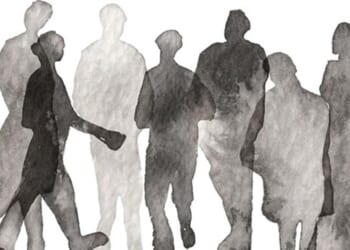ONE in ten young people are unhappy with their lives, the Children’s Society’s Good Childhood Report 2025 has concluded. This year, the research for the report, released yesterday, included consultation with ten young advisers and other young people.
The 155 ten- to 17-year-olds who took part in the research said that peer pressure, academic expectations, social media, and concerns about the world have put them increasingly under pressure; school is a prime cause of anxiety for many of them. The charity is calling for a whole-school and whole-system approach to well-being, and the continued roll-out of mental-health teams.
Last year’s report suggested that children in the UK experienced some of the lowest levels of well-being across Europe (News, 30 August 2024). This year, their mean happiness scores were significantly lower than when the surveys started in 2009/10 — findings that showed that life was “just too tough” for many young people, the chief executive, Mark Russell, said.
Six aspects of life were examined: school work, appearance, family, friends, the school they went to, and their life as a whole. School work was found for the first time to be the aspect of life which the largest proportion of children (11 per cent) were least happy with. One in seven were unhappy with their appearance: “There is a standard being pushed to what everyone should look like, and that plays a big role with satisfaction if you don’t feel like you meet that,” one said.
Consultations with young people took place between March and September and with 247 professionals between April and June. It also includes findings from the Society’s 2025 household survey (carried out between April and June) of more than 2000 ten- to-17-year-olds and their parents or carers.
In ranking the importance of aspects of life for their own future, 18 per cent of young people rated getting good grades at school or college. On broader issues in society, rising prices worried them most.
School itself can feel like a stressful environment, lacking spaces where children and young people can be alone and calm down when they need to, the report finds.
“Young people describe the workload they have to deal with at school as overwhelming. They also described a school system in which it feels like academic achievement is placed above other types of achievement.
“They highlighted that if they are encouraged or expected to spend less time on their phones, there needs to be provision of positive activities for them to redirect their focus to.”
Significant contributors to the overall decline in children’s well-being were identified by professionals to be increasing levels of poverty, poor housing, and parents’ and carers’ decreased access to holistic support, alongside practical and emotional issues. A lack of access to external resources such as youth clubs was also raised by advisers.
Many respondents spoke about what they saw as an increasingly behaviour-focused educational system with more punitive policies in school which can result in children being blamed and shamed for things outside of their control.
The report acknowledges a growing recognition of the need to support children and young people’s well-being and mental health through initiatives such as the expansion of mental-health teams and the progression of the Children’s Wellbeing and Schools Bill through Parliament.
It says: “Questions remain as to whether piecemeal announcements will ever match the ever-growing need to address the complex challenges that young people face. Delays to policy initiatives, whether that be strategies or funding, simply enable the problem to grow.”
Mr Russell said: “Our report shows we need to do so much more to ensure every child has the best start in life. But I genuinely believe solutions are possible. With the right support and opportunities in place, we can help quiet the noise and create a world where teenagers feel heard, supported, and hopeful about a positive future.”

















